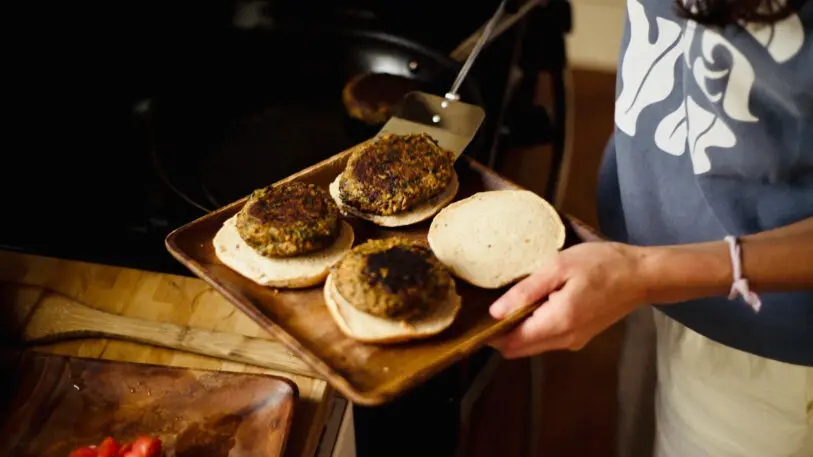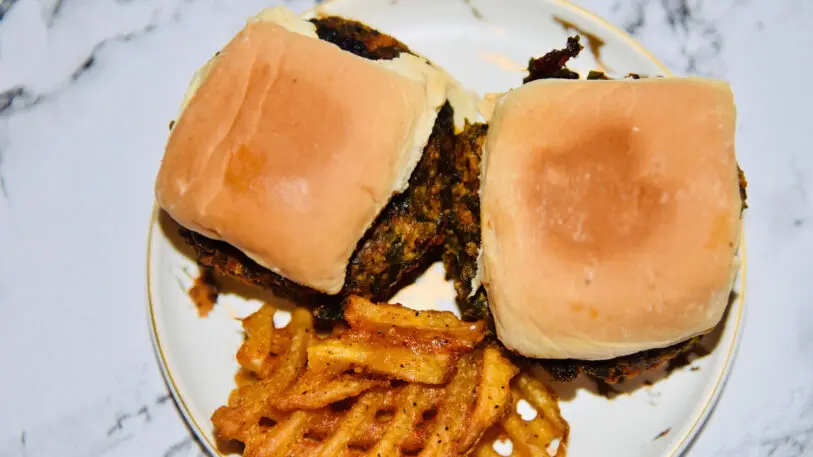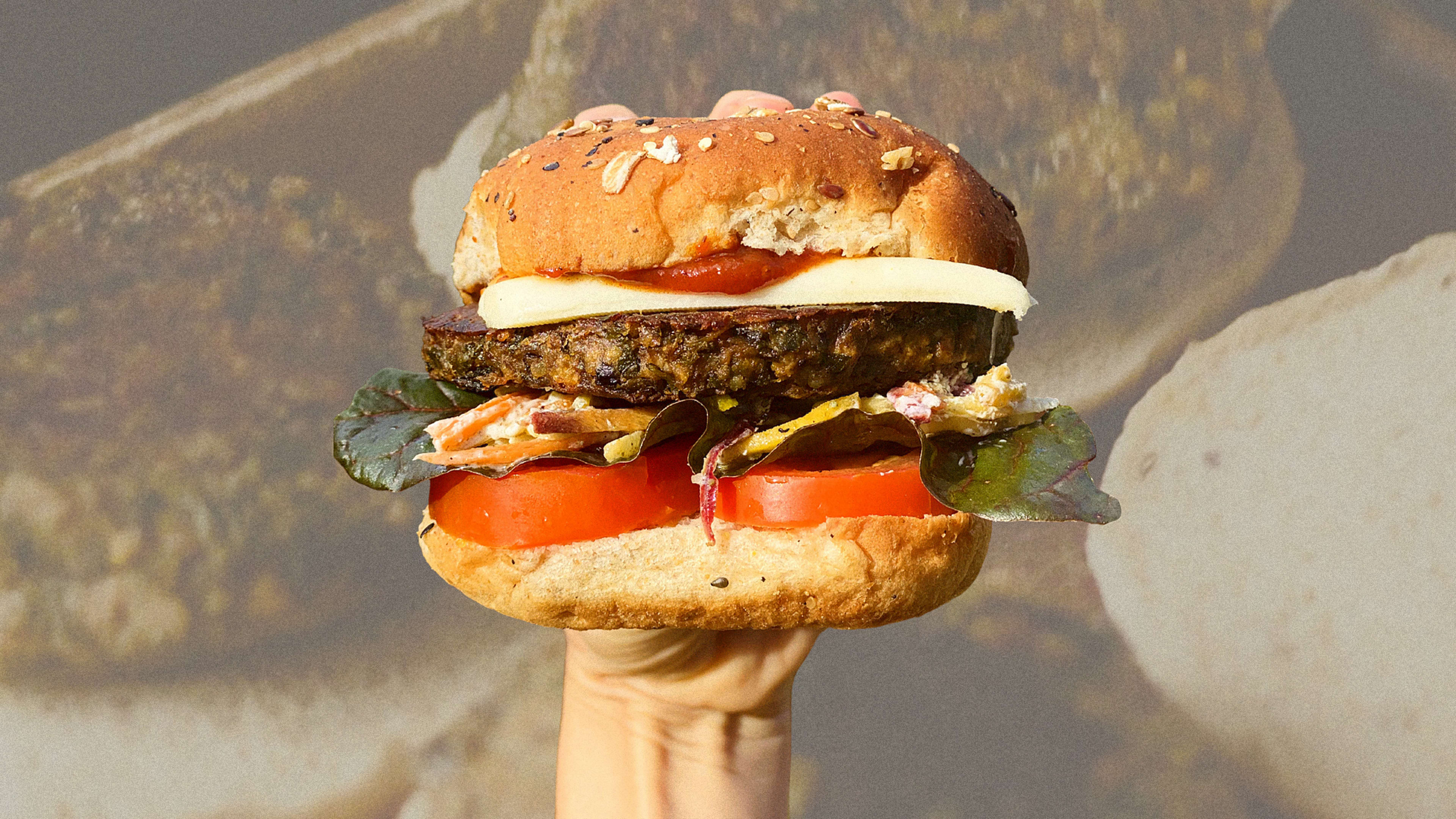In an effort to lower the carbon footprint of your diet, maybe you’ve swapped out a beef burger for one made from plants. But growing crops like peas and potatoes can still be resource-intensive, requiring lots of land, fresh water, and fertilizer, the abundant use of which is degrading our soil and polluting the water and air. Instead of looking to replace meat with plants, food startup Akua is looking to the ocean with the launch of its kelp burger.
Akua (previously named Beyond the Shoreline) has already launched a line of kelp jerky. Cofounder and CEO Courtney Boyd Myers says she was drawn to seaweed for a few reasons. Along with its health benefits, seaweed provides some environmental advantages. “If you think about food systems with kelp, it doesn’t require dry land or fresh water or fertilizer or feed to grow, so it’s what is called a zero-input food,” Boyd Myers says. “If you can grow zero-input food abundantly to feed the planet, you’re in a really good place.” Kelp farms also naturally sequester a lot of carbon, so creating a larger market for kelp could help suck up even more emissions.

For its kelp burger, Akua works with women-owned kelp farms off the coast of Maine. The Akua burger also includes cremini mushrooms, black beans, quinoa, crushed tomatoes, and pea protein, which plant-based burger eaters may recognize as an ingredient in Beyond Burgers. Boyd Myers says the Akua kelp burger isn’t meant to mimic meat in the way Beyond and Impossible burgers do, but assures it’ll still be satisfying to meat eaters.
Kelp and mushrooms have this “umami bomb taste,” she says, “and it’s really satiating in the way that meat is.” (The company assures there’s no fishy taste.) “I think that the kelp burger is going to have a special place in the market in between a fake meat burger and your boring old veggie burger.”
She’s also hoping it’ll appeal to people who might want a healthier burger alternative, made of more whole foods. (“Our Kelp Burger is made in Maine with love—not in [a] lab,” says the burger’s order page, which is technically still a “secret pre-launch,” so you can’t find it directly from the company’s website.) The Impossible burger has 14 grams of fat, 8 of which are saturated fat, and the Beyond Burger has 18 grams of fat, 5 of which are saturated fat (though Beyond did recently announce a healthier version of its faux burger). Akua’s kelp burger contains 14 grams of fat, but zero saturated fat.

Akua is raising funds for its kelp burger product on Republic, an equity crowdfunding platform, and already has raised more than $100,000. Boyd Myers knows some people might be a bit hesitant about biting into a kelp burger, but she believes that’ll change soon. She points to the growing popularity of mushrooms—another edible item that, like kelp, doesn’t fall into the “plant” category but exists in its own kingdom. Now that consumers are enjoying all kinds of varieties, from lion’s mane to maitake, and even downing mushroom “coffee,” the global mushroom market is expected to hit $86 billion by 2025, up from $53 billion in 2019. “Over the next 10 years,” Boyd Myers predicts, “I think seaweed is going to be following that trajectory.”
Recognize your brand’s excellence by applying to this year’s Brands That Matter Awards before the early-rate deadline, May 3.
